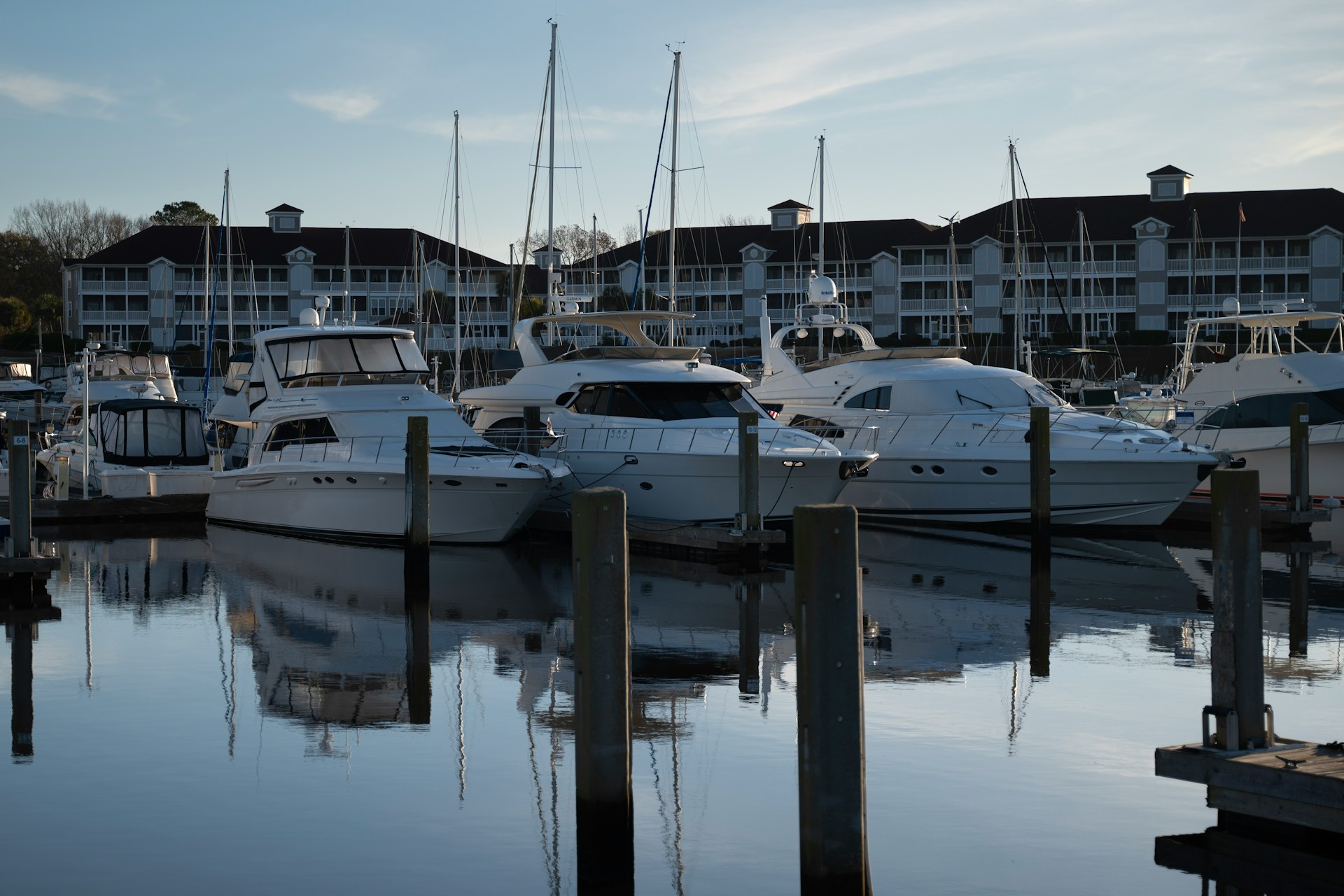The marine detailing industry is a growing and profitable sector for those interested in keeping boats and watercraft in pristine condition. However, unlike auto detailing, marine detailing presents unique challenges due to constant exposure to salt, water, and UV rays. Starting a marine detailing business requires specific tools and knowledge, so here’s a guide to everything you need to launch a successful marine detailing venture.
Why Marine Detailing?
Marine detailing is a valuable service for boat owners who want to maintain their vessels’ appearance and longevity. From preserving gel coat finishes to cleaning upholstery, marine detailing helps prevent corrosion, mold, and oxidation, keeping boats looking and performing at their best. The marine industry is diverse and includes a range of clients, from individual boat owners to commercial fleet operators, giving detailers a broad potential client base.
Basic Equipment for Marine Detailing
A marine detailing business shares some equipment with standard auto detailing, but certain specialized tools are essential for effectively servicing boats. Here’s a list of the core items you’ll need:
1. Power Washer
A power washer is critical for removing tough grime, algae, salt, and barnacles that build up on boats. Choose a power washer with adjustable pressure settings to avoid damaging delicate surfaces while still delivering effective cleaning power.
- Recommendation: Look for a model with at least 2,000 PSI and adjustable spray nozzles.
2. Dual-Action Polisher
For boats, a dual-action (DA) polisher is a must. This tool is designed to remove oxidation, restore faded gel coats, and add a protective shine to a boat’s hull and other surfaces. A high-quality DA polisher saves time and energy while achieving a polished, professional finish.
- Recommendation: Choose a DA polisher with a variable speed setting and lightweight design for maneuverability on curved and vertical surfaces.
3. Rotary Polisher
While a DA polisher is suitable for most applications, marine detailing often calls for a rotary polisher to address heavily oxidized surfaces. This tool is faster and more powerful, making it ideal for severe oxidation removal, though it requires more skill to use safely on softer materials.
4. Wet/Dry Vacuum
Boat interiors can get very wet, and a wet/dry vacuum is essential for cleaning up water, dirt, and debris from carpets, upholstery, and storage compartments. It’s also useful for draining bilge areas and other hard-to-reach places on the vessel.
- Recommendation: A portable, compact wet/dry vacuum with a long hose is ideal for maneuvering in tight quarters.
5. Steam Cleaner
A steam cleaner is effective for deep-cleaning boat interiors, killing mold, mildew, and bacteria without harsh chemicals. It’s perfect for delicate surfaces like vinyl seating, carpeted areas, and even marine fabrics.
Cleaning Products & Chemicals
6. Marine-Grade Cleaners
Marine detailing requires specific cleaning solutions designed to withstand and combat the effects of saltwater, UV rays, and organic buildup. Invest in marine-grade cleaners, including:
- Hull Cleaner: To remove tough stains, scum lines, and algae from the boat’s hull.
- Vinyl Cleaner & Protectant: For cleaning and conditioning vinyl seating, dashboards, and cushions, which can fade or crack under constant UV exposure.
- Metal Polish: To clean and polish stainless steel and other metal surfaces, which are highly susceptible to rust and corrosion from saltwater.
7. Degreasers and Engine Cleaners
The engine and mechanical parts of boats accumulate grease and oil. A marine-safe degreaser will effectively clean the engine compartment and other greasy areas without harming the water environment.
- Eco-Friendly Options: Opt for biodegradable, marine-safe degreasers to minimize environmental impact.
8. Gel Coat Polish and Wax
Marine gel coats require specialized polishes and waxes to retain their gloss and protect against oxidation. Gel coat wax also provides a barrier against UV rays, saltwater, and debris.
- Recommendation: Look for a marine-specific gel coat polish and wax that offers long-lasting protection.
9. Ceramic Coatings for Marine Use
While traditional waxes are effective, many marine detailers now offer ceramic coatings for superior durability and protection. Marine-grade ceramic coatings form a tough barrier that protects surfaces from oxidation, UV damage, and water spots, making maintenance easier for clients.
Additional Tools and Accessories
10. Microfiber Towels and Sponges
Durable microfiber towels are essential for detailing any surface on a boat, from the interior to the hull. Have a variety of sizes and types for different tasks: plush towels for wiping surfaces, thin towels for windows, and specialty cloths for metal polishing.
- Marine Sponges: Soft sponges specifically designed for boats won’t scratch gel coat or painted surfaces, making them a great addition.
11. Detailing Brushes
Brushes are essential for reaching tight spaces and cleaning textured surfaces, especially non-skid areas on boat decks. Invest in a set of detailing brushes that include soft bristles for interior surfaces and tougher bristles for hull cleaning.
12. Extension Cords and Hose Reels
Boats are often docked far from power sources and water hookups, so having high-quality extension cords and hose reels ensures you’re always ready to work, regardless of location. Look for waterproof and marine-grade options to handle these conditions.
13. Safety Gear
Marine detailing often involves the use of chemicals, high-pressure water, and equipment that can be dangerous if not handled properly. Equip yourself with safety gear like gloves, goggles, and even anti-slip footwear to stay protected.
- Life Vest: If you’ll be detailing near or on the water, a life vest is a smart addition to your safety gear.
Tips for Running a Successful Marine Detailing Business
Starting a marine detailing business goes beyond having the right tools. Here are some additional pointers for getting your business up and running:
- Consider Seasonality: Marine detailing is often seasonal, with peak demand in spring and summer. During off-peak months, consider offering winterizing services to stay busy and keep boats protected through colder months.
- Market to Marinas and Boat Clubs: Build relationships with marinas, boat clubs, and even local yacht brokers. These connections can provide a steady stream of clients looking for detailers to care for their boats.
- Showcase Your Work on Social Media: Before-and-after photos of marine detailing work are visually impressive and highly shareable. Use platforms like Instagram, Facebook, and even TikTok to build a following and showcase the quality of your work.
- Offer Package Deals: Marine detailing often requires multiple services, from cleaning and waxing to engine and upholstery care. Offering package deals makes it easier for clients to choose comprehensive services and adds value for boat owners.
Final Thoughts
Starting a marine detailing business requires a specialized set of tools, high-quality products, and a commitment to customer satisfaction. With the right equipment, detailing knowledge, and marketing approach, you can build a profitable business serving boat owners who need a trusted expert to keep their vessels in top condition. From essential tools like power washers and steam cleaners to unique products such as marine wax and ceramic coatings, being well-equipped is key to standing out in the marine detailing market.
Discover more from Detailing Industry News
Subscribe to get the latest posts sent to your email.








